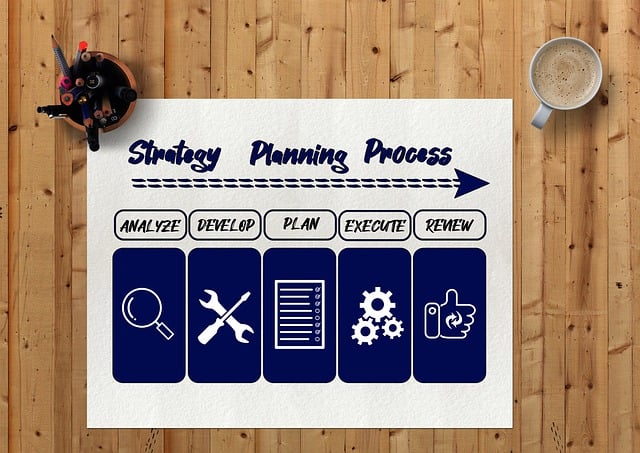Creating Effective Habits
Creating effective habits was first mentioned in the first part of this 5-week series when we conversed about Creating financial discipline .
Let’s get a bit technical with regard to habits.
The Science of Creating Effective Habits
Research has shown that habits are formed through repetition and consistency. As Simon Sinek, author of “Start with Why,” notes, “Habits are the compound interest of self-improvement. They may not be sexy, but they are powerful”. Jim Kwik, author of “Unlock Your Brain,” agrees, stating, “The key to changing your habits is to focus on the process, not the outcome. When you focus on the process, you can control the outcome”.
The book “The Compound Effect” by Darren Hardy highlights the power of small, consistent daily actions in achieving significant results over time. Hardy emphasizes that it is not the grand, dramatic choices that lead to success but rather the accumulation of tiny, seemingly insignificant actions that can have a profound impact. He uses the formula “Small, Smart Choices + Consistency + Time = Radical Difference” to illustrate how these small actions can compound and lead to extraordinary outcomes.
These concepts are particularly relevant in personal finance, where small, consistent savings and investments can lead to substantial wealth over the long term.
By adopting a mindset that prioritizes consistency and patience, you can harness the compound effect to achieve your financial goals and build a more secure financial future.
The Power of Small, Daily Actions
Brendon Burchard, author of “The Millionaire Messenger,” emphasizes the importance of small, daily actions in building discipline and habits. He writes, “The key to success is not about being perfect; it’s about being consistent. It’s about taking small, daily actions that move you closer to your goals”.
The aspect of small, consistent daily actions results in a concept known as the compound effect. This is a powerful principle that demonstrates how small, consistent daily actions can lead to significant results over time. It is based on the idea that each action we take compounds and multiplies its effect, similar to how compound interest works in the financial world.
The beauty of the compound effect lies in the fact that you don’t need to make drastic changes or grand gestures to see significant results. Small, manageable improvements, consistently applied, can lead to exponential growth over time. For example, putting aside KES 100 per day can lead to substantial savings over the course of a year.
The key to harnessing the power of the compound effect is consistency. By taking small, positive actions every day, you build momentum and create a snowball effect that leads to exponential growth. Whether it’s reading for 15 minutes, exercising for 30 minutes, or saving a small portion of your income, doing these things consistently over an extended period can lead to remarkable results.
The compound effect takes time to manifest. It’s not an overnight success story, but rather a gradual process of consistent effort. Just as a seed takes time to grow into a mighty tree, the compound effect requires patience and persistence. However, the rewards are worth the effort, as the results compound and multiply over time.
Habits and the Compound Effect
Habits play a crucial role in the compound effect. By cultivating positive habits through consistent daily actions, you create a strong foundation for success. When an action becomes a habit, it requires less willpower and effort to sustain. These daily rituals become ingrained in your routine, making progress feel natural and effortless.
Overcoming Setbacks
It’s important to note that the compound effect is not a linear process. There will be setbacks and challenges along the way. However, by staying consistent and persevering through these obstacles, you can continue to make progress and reap the benefits of the compound effect. Remember, every small action you take is either moving you forward or holding you back.
Daily Habits Examples
Daily Gratitude Journaling: Keeping a daily gratitude journal can lead to significant improvements in mental well-being and relationships. Consistently writing down things you are thankful for each day can create a positive ripple effect in your life.
Compound Interest in Retirement Savings: Contributing a small amount to a retirement fund consistently over time can lead to substantial wealth accumulation. For instance, if you invest $500 per month for 30 years at a 7% annual interest rate, you can end up with over $1.3 million
Daily Reading Habit: Consistently reading for 15 minutes each day can lead to significant improvements in knowledge and self-improvement. Over a year, this habit can result in reading over 5,500 pages, which can significantly enhance one’s understanding of various subjects.
The 3 R’s of Creating Effective Habits in Personal Finance
We all have financial habits—some that serve us well and others that don’t. Impulse buying and neglecting to save can hinder our financial goals. The good news? These habits can be transformed. By applying the 3 R’s of habit change—Reminder, Routine, and Reward—you can replace unhelpful habits with ones that foster financial success.
1. Reminder: Setting Up Triggers for Change
The first step in changing a habit is recognizing what triggers it. In personal finance, a reminder can prompt you to reconsider your spending choices. This might be a daily notification to check your bank balance or a sticky note in your wallet asking, “Do I really need this?”
“We are what we repeatedly do. Excellence, then, is not an act, but a habit.” – Aristotle
Strategy: Identify a specific trigger for your bad habit. For instance, if you often overspend online, set a reminder on your phone to check your budget before making purchases. This pause can help you rethink your decision.
2. Routine: Establishing New Financial Habits
Once you have your reminder, it’s time to create a new routine—an action to take when the reminder pops up. If your goal is to save more, consider transferring a small amount to your savings account every payday. Over time, this will become second nature.
“Success is the sum of small efforts, repeated day in and day out.” – Robert Collier
Strategy: Replace a negative habit with a positive routine. For example, if you want to cut unnecessary spending, make it a habit to review your budget weekly. Categorize your expenses and pinpoint areas to cut back.
3. Reward: Reinforcing Positive Financial Behavior
Every habit needs a reward to stick. It doesn’t have to be extravagant; it just needs to feel good. In money management, rewards can be as simple as watching your savings grow or treating yourself after reaching a financial milestone.
“The greatest reward for your actions is not what you get, but what you become.” – John C. Maxwell
Strategy: Celebrate your wins. If you’ve adhered to your budget for a month, reward yourself with a small treat—a nice meal or a movie night. This reinforces positive behavior and encourages continuity.
Conclusion
Creating effective financial habits takes time, but with the 3 R’s – Reminder, Routine, Reward – you can pave the way for success. Consistency is key. Each small step not only transforms your habits but also your financial future.
Next time you find yourself slipping back into old habits, remember your reminder, stick to your routine, and don’t forget to reward yourself. Your future self will be grateful!








